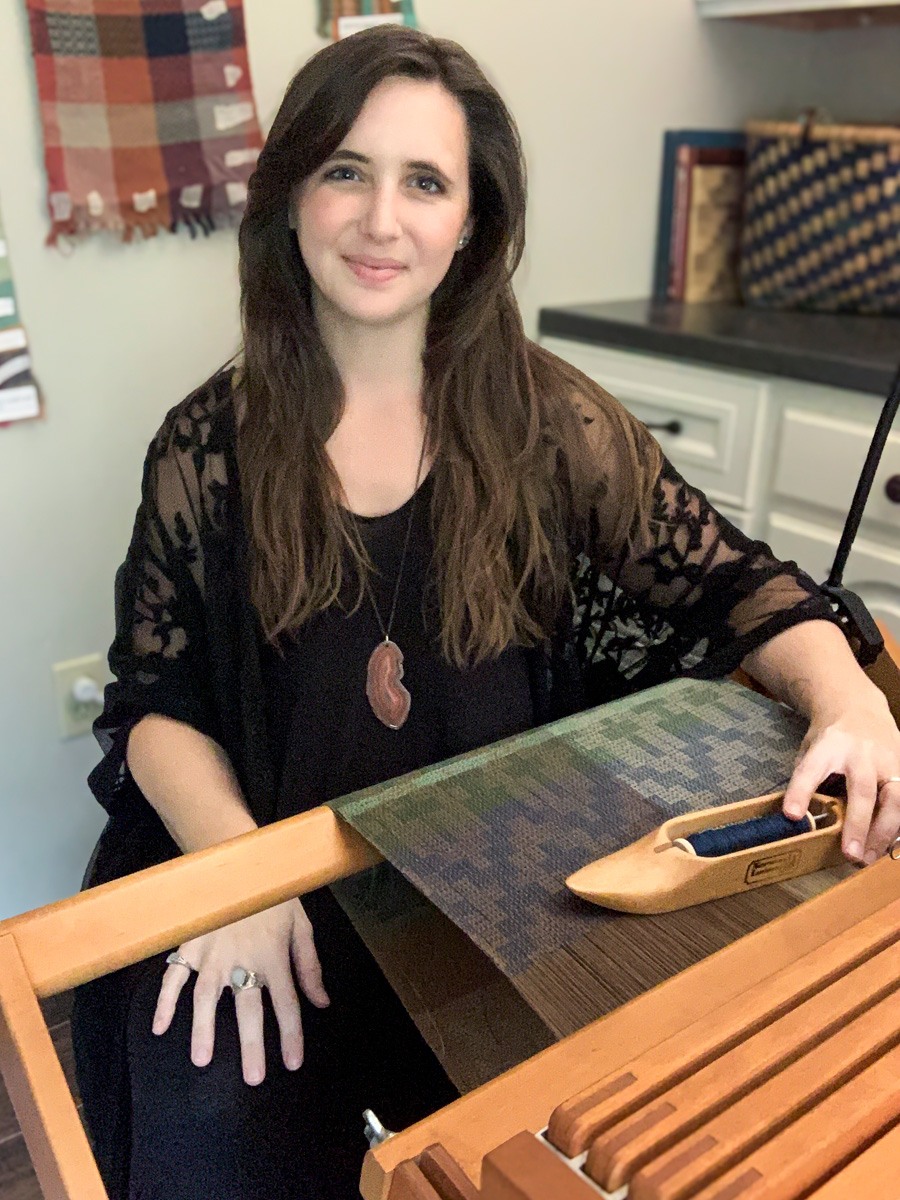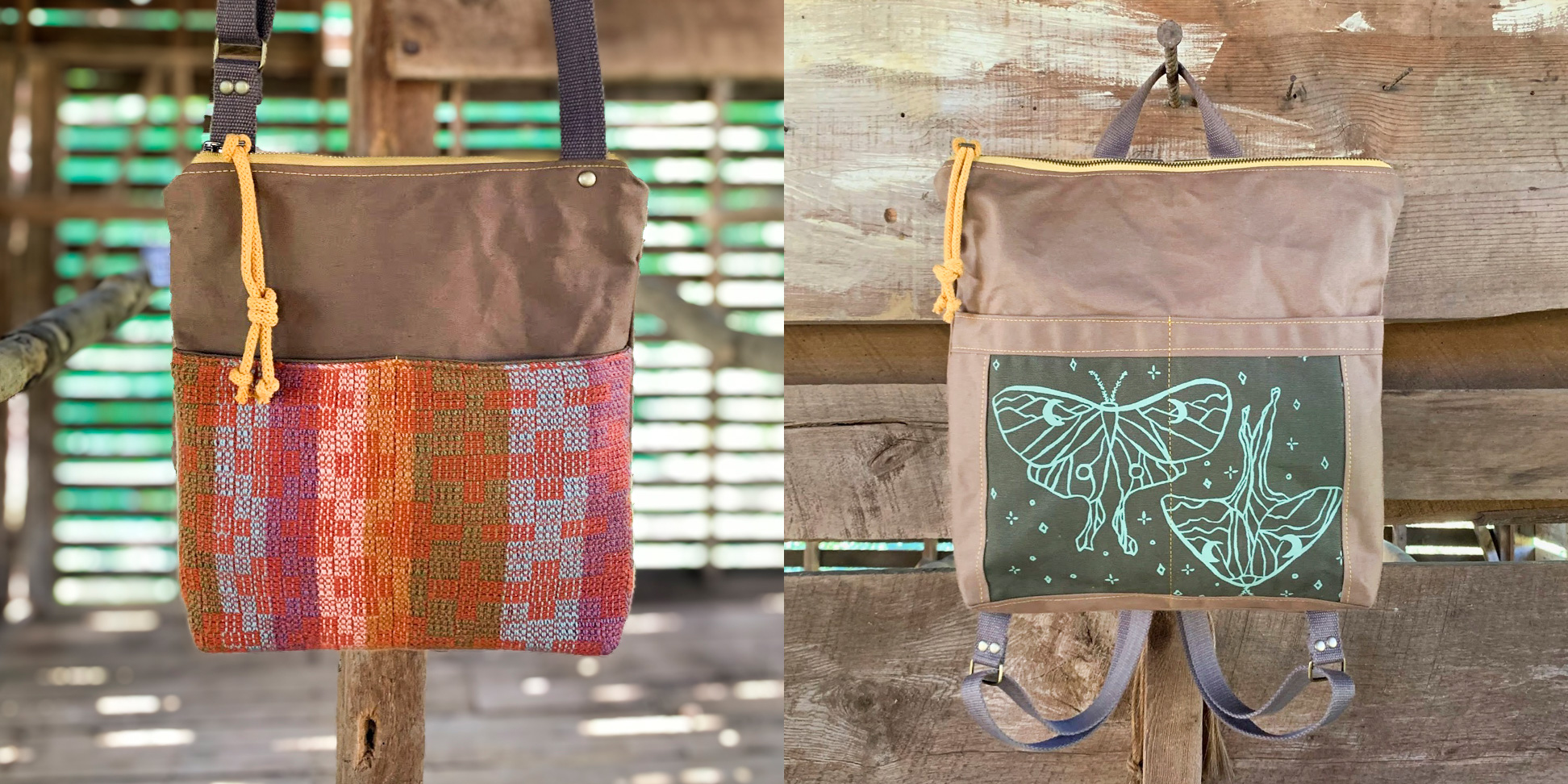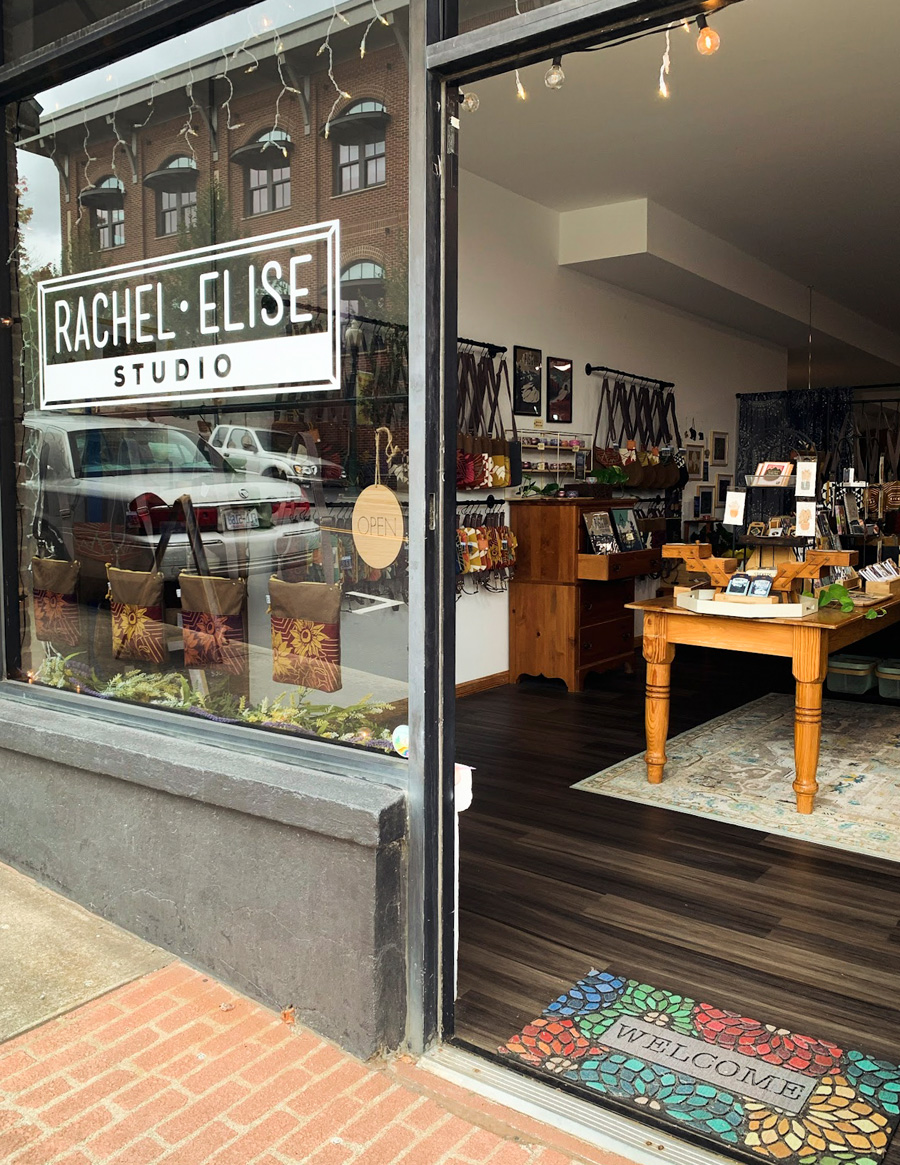It's In the Bags
Nature inspires the designs of artist-turned-entrepreneur Rachel Aughtry ('10).
January 14, 2025

Rachel Aughtry ('10)
Rachel Aughtry ('10) gathers inspiration from the natural beauty that surrounds her each day to create the line of handcrafted purses, backpacks, laptop bags and other items produced by her company.
Rachel Elise, an art-and-design studio, is located in Mars Hill, North Carolina -- a small town nestled amid the Blue Ridge Mountains -- where Aughtry and her husband, Bo Aughtry ('08), whose degree is in radio, television and film -- relocated from Denton in 2017.
There, she designs, screen prints and stitches every canvas bag that the company sells
on its website and wholesales to boutiques throughout the country. A selection of Rachel Elise items
is available at the UNT CoLab, the downtown Denton art gallery, boutique and event venue that's run through the
College of Merchandising, Hospitality and Tourism.
"Just living here in the mountains and being surrounded by nature all the time, you
see mountain silhouettes in my work a lot," says Aughtry, who earned a degree in studio
art with a focus on fibers and printmaking in the College of Visual Arts and Design.
On a DIME
While at UNT, Aughtry started a side hustle handmaking bags from found textiles and vintage fabrics, which she sold on Etsy and at a local coffee shop. She says former studio art lecturer Lesli Roberston -- with whom Aughtry studied weaving -- supported and encouraged her entrepreneurial spirit. "She and I just really gelled on a personal and professional level."
As graduation neared, Aughtry teamed with Denton resident Shelley Christner to establish DIME, an online group for area crafters who made and sold goods on Etsy. After selling their own products at local craft markets, they opened The DIME Store, a Denton shop filled with items by area artisans, in 2013.

A pair bags that are part of the Rachel Elise line.
Aughtry co-owned the store for about four years while making and selling her Rachel Elise bags. However, she says, "I always felt pulled between both. One was paying for my livelihood and the other was this incredible community project that supported so many people. But I knew that the structure was there for it to continue without me, so it felt like a good time to pass the torch."
Eight years ago, she sold her half of the business to Christner and moved to North Carolina, where she and Bo -- who co-owns and is a production specialist for Rachel Elise -- had honeymooned years earlier.
The couple had a design studio in their home, but moved the operation to a storefront two years ago.
"We have a big production space so people can come see what we're doing," she says. "They can come in and look at our collection of prints and say, 'OK, I want this print on this style of bag,' so people can be involved in the process."
Circling back to her UNT studies, last year Aughtry resumed weaving fabric and began embellishing bags with woven panels that she creates on a loom at her studio.
While the process is time-consuming, the final product is worth the effort. "It's cool because you just need a few inches of fabric to create the panel that's going to be on the bags. So, if I'm planning on making nine yards worth of fabric, I can get dozens of bags out of that."
Calm After the Storm

Rachel Elise Studio
About a dozen artists sell their pieces at the studio, which unexpectedly served as a lifeline for area residents after Hurricane Helene pummeled the region last fall.
While Mars Hill emerged relatively unscathed from the storm, Aughtry says, "In every direction around us was unbelievable devastation."
In the days following the storm, the Aughtrys opened the doors at Rachel Elise Studio to provide the public with water, electricity, Wi-Fi and emergency information that they posted in the shop's windows. "We had a safe place that had resources, and it just felt easy for that to be what we offered."
The studio now serves as the permanent workspace for a pair of area crafters impacted by the hurricane, including a fellow weaver from the nearby artist enclave of Marshall, North Carolina, where the studios and art inventories of many local craftspeople were destroyed.
Having "studio mates" once again reminds Aughtry of the years she spent studying in UNT's Art Building. "I didn't realize how much I missed that constant interaction with other artists sharing a space together and how valuable that was. It's really cool."